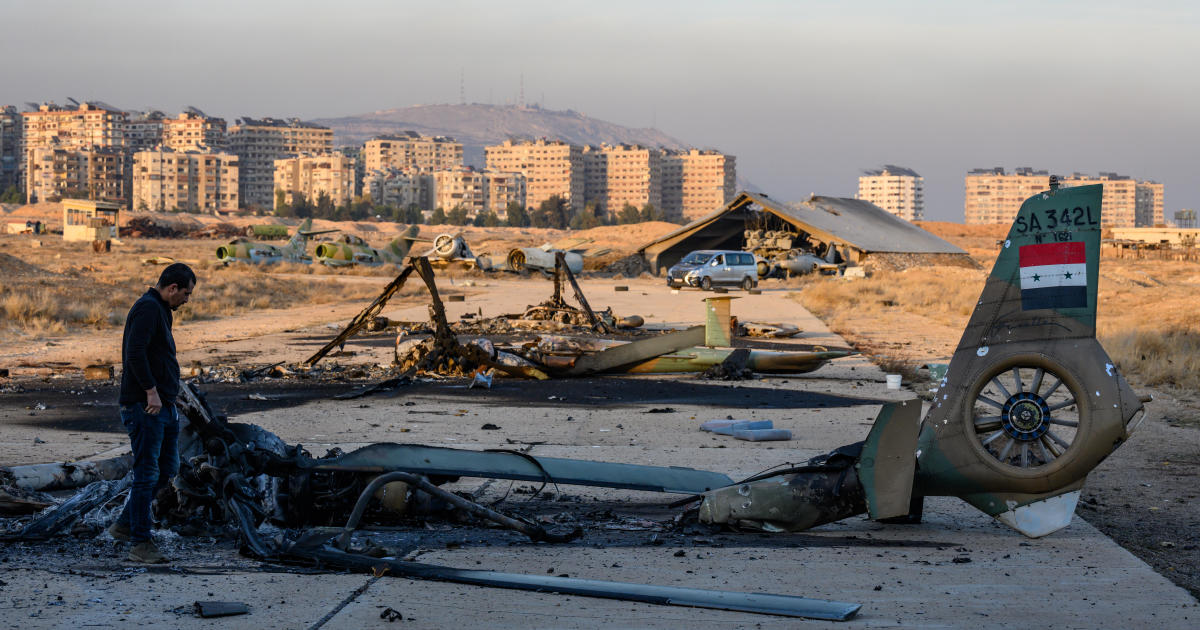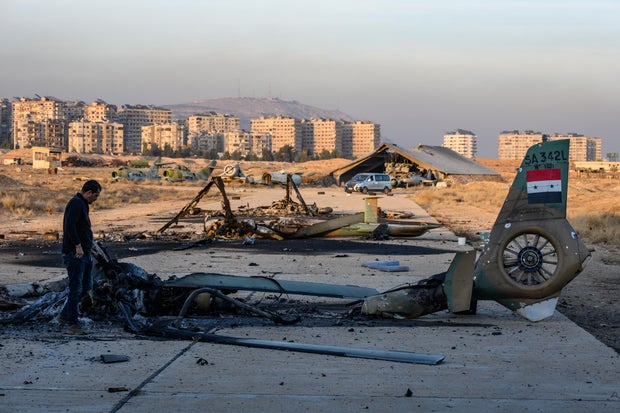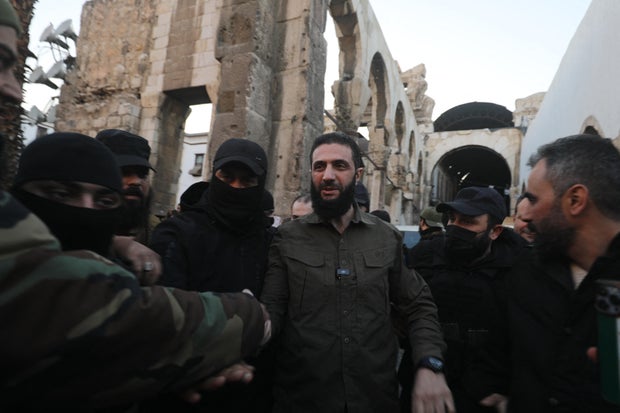Damascus — A CBS News crew drove through a Syrian military air base on the outskirts of the capital Damascus on Monday, and the devastation caused by Israeli airstrikes was abundantly clear. Israel said it was determined to destroy weapons and other military equipment that ousted dictator Bashar al-Assad and his father spent half a century amassing before falling into the hands of extremists.
Israel's military has been pounding Syrian military infrastructure relentlessly since Assad fled to Russia earlier this month - forced by a shock rebel offensive after a decade of civil war that until about two weeks ago was largely at an impasse.
The damage done to Assad's old war machine is staggering. One overnight jolt in the coastal city of Tartus, for example, was so massive that the Syrian Observatory for Human Rights monitoring group quoted a Turkish scientist as saying it registered on the Richter scale the equivalent of a Category 3 earthquake.
Until Moscow's ally Assad fled Syria, Russia retained its only major naval base outside Russian territory at Tartus. Satellite images (below) show most Russian ships disappearing from the port of Tartus quickly after Assad fell, but the Russian Defense Ministry said on Monday it was still figuring out what to do with its military equipment and personnel in the country, in negotiations with the country's new de facto rebel rulers.
Meanwhile, the Israeli military claims to have destroyed most of Assad's heavy weapons and air defenses. In a statement on Monday, the Israel Defense Forces said that in recent days its fighter jets had "severely damaged Syria's most strategic weapons: fighter jets and helicopters, Scud missiles, UAVs, cruise missiles, surface-to-sea precision-guided missiles, surface-to-surface missiles air, surface-to-surface missiles, radars, missiles, etc."
The IDF said its strikes destroyed "over 90% of the identified strategic surface-to-air missiles" of the ousted regime.
The lightning-quick takeover of Syria a week ago by the rebel group Hayat Tahrir al-Sham, or HTS, also saw Israeli forces launch a ground incursion that stretches past the occupied Golan Heights region into a previously demilitarized buffer zone in Syria.
Ahmed al-Sharaa, the head of HTS and Syria's new de facto leader, criticized what he described as Israel's "adventurous military adventures" and said he and his group - which, before publicly distancing itself from extremist ideology , was al-Qaeda's affiliate was more interested in state building than starting a new conflict with Israel.
The targeting of Syria's military sites also revealed a deep disregard on Assad's part. Years of corruption and a decade of civil war had depleted the nation's armed forces, contributing to the collapse of his regime. Much of the equipment left behind by his forces when they surrendered to the insurgents or simply took off their uniforms and fled is old and apparently lacking in maintenance.
Assad's office issued the first statement attributed to the ousted leader since he was forced to flee the country. In it, he claimed that he had never considered resigning or fleeing, but that he took refuge at the Russian-run Hmeimim air base when the rebels approached, and when that facility came under sustained drone attack, he says an evacuation was ordered on December 8, a day after HTS rebels seized the capital, Damascus.
He said he ended up going to Russia because he couldn't do anything else in Syria, lamenting that the country had fallen "into the hands of terrorism".
The statement was posted on the Syrian presidency's official channel on the Telegram messaging app, noting that it was published after several failed attempts to get it published through Arab and international media. The claim was deleted relatively quickly from the Telegram channel, but without any explanation, before reappearing there and on the presidency's Facebook page.
While the wider international community is still trying to figure out how to deal with HTS, which has said it will respect all religions of Syrians and appears determined to be seen as a secular interim administration - although it has not said what comes next for the country after three-month transition period—Israel and the US remained primarily focused on securing Assad's stockpiled weapons.
For Israel, it marks the most ferocious airstrikes carried out in Syria in years, and they continued on Monday, just over a week after Assad's sudden departure.
Whoever takes control of Syria will inherit a military infrastructure that has been largely destroyed. Judging by the IDF's statement on Monday, which said its strikes represented a "significant achievement for the superiority of the Israeli Air Force in the region," this may be just as intended.
Source link



